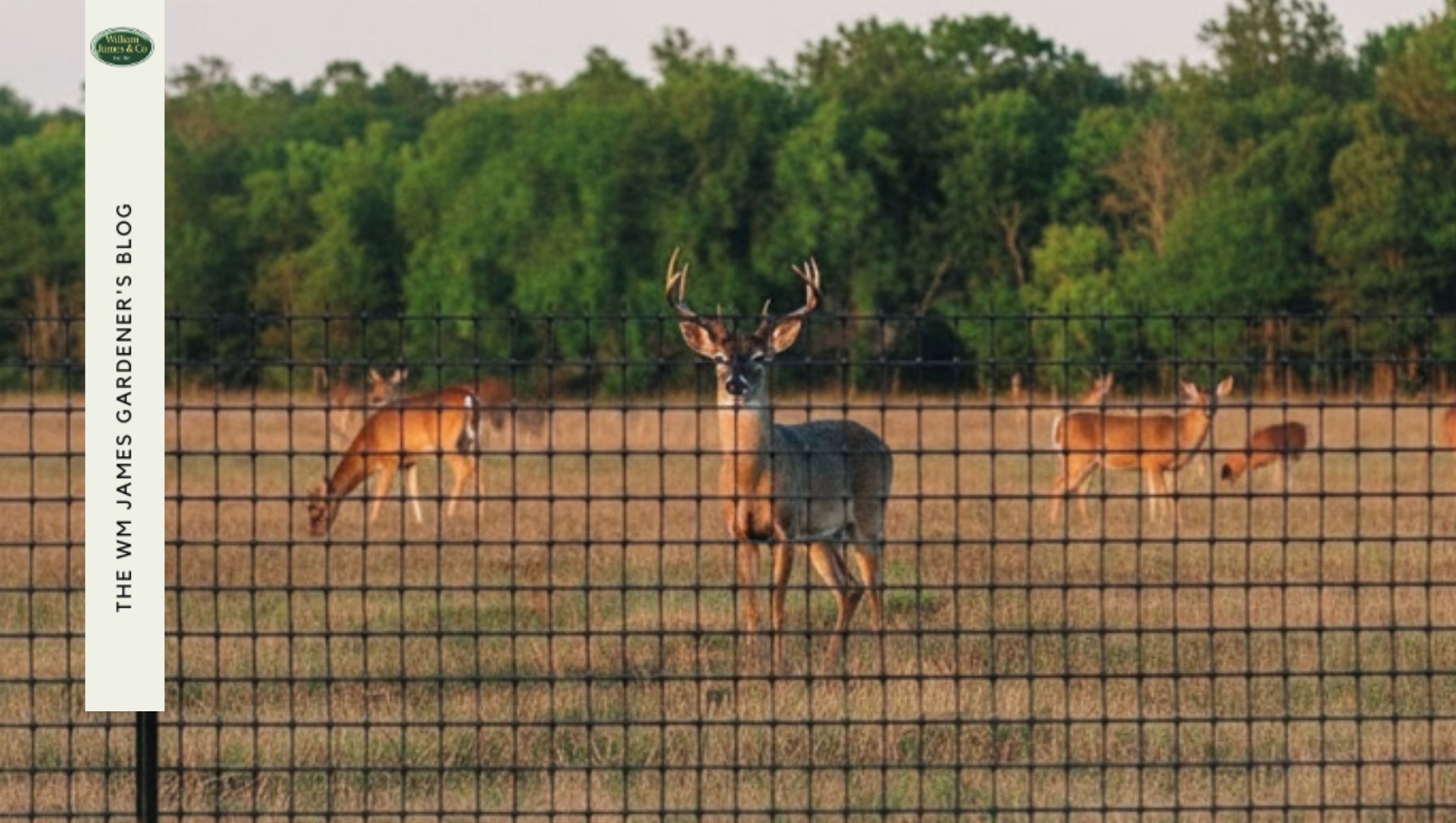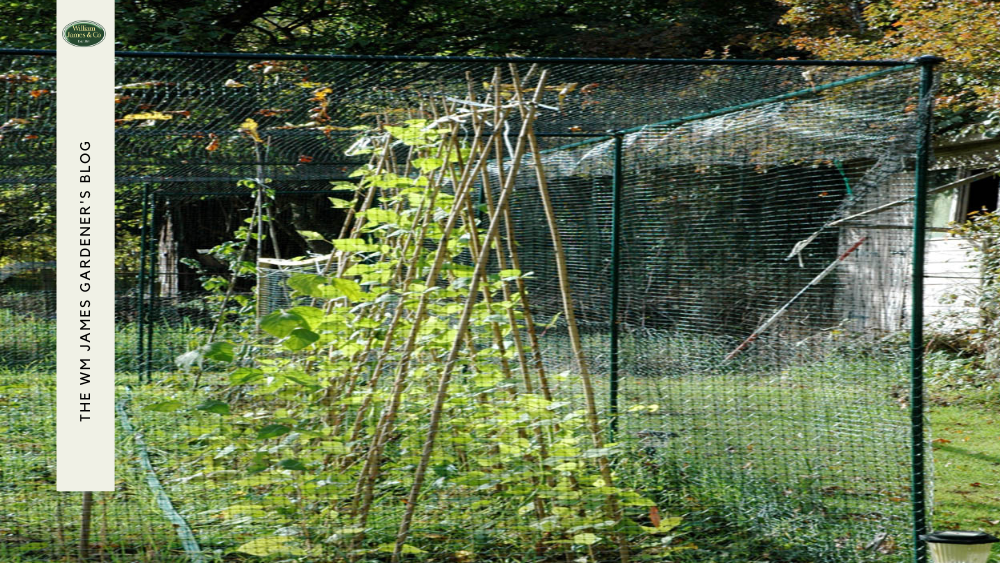We use cookies to make your experience better. To comply with the new e-Privacy directive, we need to ask for your consent to set the cookies. Learn more.
How to Get Rid of Blackfly: Tips on Protecting Your Plants From Aphids
- Admin
- WM James Gardening Blog
- 17 Dec 2024
-
516views

Have you noticed any deformities in your plants recently? Are they not growing as well as usual? Or, have you been seeing ants climbing up and down your crops? That sounds like it could be blackfly. If you want to learn how to get rid of blackfly, WM James has some tips to help you.
Rest assured, your plants are in safe hands.
So, if you're not quite sure how to handle your infestation, no matter how big or small, follow our guidance and let's keep your precious plants healthy and thriving!
If you're looking for some products to help remove blackfly, check them out below! Free and fast delivery is available.
In This Guide:
How to Get Rid of Blackfly Naturally
How to Get Rid of Blackfly on Plants
Preventing Future Blackfly Infestations on Your Outdoor Plants
How to Get Rid of Blackfly on Houseplants
Summary: Getting Rid of Blackfly for Healthy Plants
What is Blackfly?
In the gardening world, blackfly refers to a type of aphid commonly called the 'black bean aphid'. These are tiny bugs (1.5-3mm long) that suck the sap out of plants, like beans, nasturtiums, and spinach, causing leaves to curl, affecting growth.
They also excrete sticky honeydew, which can attract other pests and lead to mould. So, yeah, they aren't great for your crop.
They're often found in dense colonies on the soft, new growth of plants, such as shoots, leaves, and flower buds.
Winged blackfly can also form if the colony gets too crowded, and they need to migrate to your other surrounding plants.
What is an Aphid?
Aphids are among the most common pests you'll find in a garden, greenhouse, and farms. Common aphids include blackfly and greenfly.
They are known as sap-sucking insects, and they can seriously impact your plant's growth – not in a good way.
Needing warmth to survive and thrive, their life cycle is limited from spring to summer, but in your home or in a greenhouse, aphids can pop up at any time of the year.
According to the RHS, there are more than 500 species of aphids in Britain, and they can be found on a wide variety of hosts. This, paired with the size of aphids (1-7mm), means they can be particularly hard to spot and therefore remove. But we'll get onto that later.
Why is Blackfly a Problem?
As we mentioned earlier, blackfly are sap-sucking insects. Without sap, plants could weaken, leading to stunted growth and deformities.
They can also excrete honeydew, which attracts other pests like ants. These ants that the honeydew attracts will remove any predators of the blackfly, helping them flourish.
5 Ways to Get Rid of Ants Nests in Your Lawn
Over time, the honeydew will also cause a sooty mould that blocks the plant from getting sunlight. If you spot this, you can remove it with a damp cloth.
Blackfly can also be responsible for spreading harmful diseases as they move from plant to plant.
Having said all that, however, blackfly are essential in a garden's food chain, providing food for many species of insects and even birds. They’re only really a problem to your plants when they appear in large quantities.
How to Get Rid of Blackfly Naturally
| Outdoor Plants | Houseplants |
| Wash off infestation with water | Take outside and wash infestation with water |
| Manually squash infestations | Manually squash infestations |
| Prune seriously affected areas | Prune seriously affected areas |
| Buy or encourage natural predators | Introduce predators into your home |
Using harsh pesticides in your garden can negatively impact your plants and surrounding wildlife, especially bees, which is extremely damaging to our environment.
Pesticides ultimately give you no natural control over your garden, reducing biodiversity, which will lead to the return of blackfly.
So, we'll be giving you some useful tips on how to get rid of blackfly naturally and safely while keeping your garden's natural ecosystem intact.
Some non-harmful, beneficial insects – like ladybirds – actually rely on blackfly for food, so it's important to note that removing the aphids will likely kill the other insects.
You could always try to let nature do its thing until there are dense amounts of blackfly that you want to control yourself.
Why Wildlife Gardening is Important
Let's get into the tips.
How to Get Rid of Blackfly on Plants
If you have a severe infestation of blackfly and they're seriously affecting your crop, you might not want to wait for natural predators to get at them.
Here are some things you can do to your outdoor plants to remove large colonies of blackfly:
- Wash your infestation off with a strong hose or jet washer every few days until the blackfly are gone.
- Using your finger and thumb, squash small infestations.
- Prune seriously affected areas with some Pocket Pruners. Be careful not to compost the plant matter, as the blackfly will survive, and you risk spreading them to other crops.
- Buy or encourage natural predators of blackfly to keep their numbers down.
Preventing Future Blackfly Infestations on Your Outdoor Plants
Once you've successfully removed the blackfly, you'll want to ensure they don't return in huge numbers again. Here are some things you can do:
- Crop rotation. Read all about the process here!
- Use fine mesh or netting to try to deter pests from your crops. Our netting is heavy-duty and extremely reliable. We recommend our Ultra Fine Insect Mesh Netting because it can protect against many pesky bugs all year round without deteriorating.
- Aphids hate strong-smelling plants. Planting your affected plants near garlic or onions can deter the pests.
- Keep your plants well-fertilised and watered; in other words, healthy.
- Regularly inspect your plants, especially during spring and summer.
- Keep your greenhouse clean, and give it a thorough clean at least twice a year to reduce pests.
How to Get Rid of Blackfly on Houseplants
Houseplants are a little different because you don't have natural predators inside your house, like ladybirds and wasps that eat blackfly, so the approach needs to be altered slightly.
Here are some things you can do if you have an infestation of blackfly on houseplants:
- Bring the plant in question outside and wash the blackfly off with a strong water hose or jet washer. Repeat this every few days until the blackfly are gone.
- Squash small infestations using your finger and thumb.
- Use our Pocket Size Pruners to prune affected areas. Do not compost the plant matter, though, as the blackfly will survive and could spread to other crops.
- Introduce predators into your home. This involves purchasing live predators of blackfly and keeping them in your home to help your plants.
Preventing Future Blackfly Infestations on Your Houseplants
Well done for controlling the blackfly on your houseplants! But you need to take preventative measures to keep your plants healthy and thriving. Here are some things you can do:
- Ensure your plants remain well-fertilised and watered.
- Regularly inspect your plants, especially when you first bring them into your home.
- Isolate plants for 1-3 weeks before you introduce them to your other indoor plants.
Summary: Getting Rid of Blackfly for Healthy Plants
If you're struggling with blackfly and an infestation is significantly impacting your plants' health, you should now have some useful tips to try out for yourself.
But before you go, here are two key points that are important to remember:
- Blackfly and other aphids are an important part of ecosystems, providing food for their predators. If possible, you can leave their natural predators to remove them for you.
- Most pesticides (even organic ones) are harmful to gardens and wildlife, so we don't recommend using them. If you are likely to use a pesticide or insecticide, don't spray it on plants in flower. This will harm pollinating insects.
Go ahead and tackle your blackfly problem with our handy tips. By following WM James’ advice, you can help save the health of your plants and your garden's ecosystems!
If you need any more assistance, please don't hesitate to contact us. With over 60 years of experience in the horticultural industry, we are more than happy to help!
*Free UK delivery is available on all orders over £100.
FAQs
What Will Keep Blackfly Away?
There are plenty of preventative measures to keep blackfly away from your plants. Some can include crop rotation and planting affected plants with strong-smelling plants like garlic.
Does Soapy Water Get Rid of Blackfly?
Soap isn't completely safe to use on plants, but many people use it diluted with water to spray on their plants to remove aphids like blackfly. There are plenty of other things you can do to remove blackfly that don't include chemicals. Check them out in our blog post!
How to Get Rid of Greenfly?
Greenfly, like blackfly, is a variety of aphid, so their removal process is much the same. To find out how to remove these types of aphids, check out our blog post.
What Causes Blackfly Infestation?
Blackfly infestations are common in UK gardens and among houseplants, and they appear for many reasons:
- Warm weather
- They're attracted to young, soft plants that haven't yet become hardy
- A lack of natural predators
- Growing large patches of the same plant in the same spot without rotating for diversity
- Not checking on your plants
Does Vinegar Get Rid of Blackfly?
Vinegar actually attracts flies and does not repel blackfly. It can act as a trap for different insects, but there are other ways to remove and prevent pests. Discover how to remove and prevent blackfly in our blog post.














